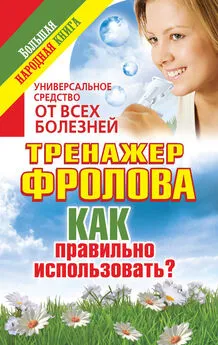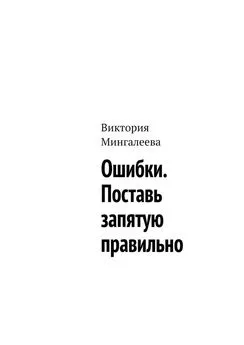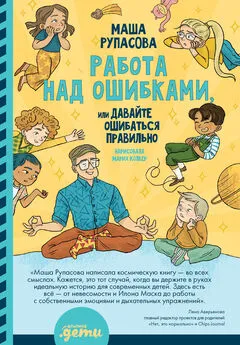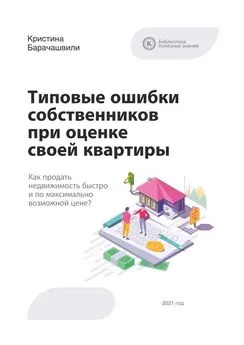Ив Жангра - Ошибки в оценке науки, или как правильно использовать библиометрию
- Название:Ошибки в оценке науки, или как правильно использовать библиометрию
- Автор:
- Жанр:
- Издательство:ООО «ЛитРес», www.litres.ru
- Год:2018
- ISBN:нет данных
- Рейтинг:
- Избранное:Добавить в избранное
-
Отзывы:
-
Ваша оценка:
Ив Жангра - Ошибки в оценке науки, или как правильно использовать библиометрию краткое содержание
Ошибки в оценке науки, или как правильно использовать библиометрию - читать онлайн бесплатно полную версию (весь текст целиком)
Интервал:
Закладка:
114
114См.: Richard Van Noorden, “Brazilian citation scheme outed. Thomson Reuters suspends journals from its rankings for ‘citation stacking’,” in Nature , 500, 29 August, 2013, pp. 510–511.
115
115См.: Editorial, “Not so deep impact,” in Nature , 545, 23 June 2005, pp. 1003–1004.
116
116См.: Per O. Seglen, “Why the impact factor of journals should not be used for evaluating research,” in British Medical Journal , 314, 15 February, 1997, pp. 498–502.
117
117См.: Nicolas Gallois, “Les conséquences des nouveaux critères d’évaluation des chercheurs en science économique,” in L’Économie politique , 59, 2013, pp. 98–112.
118
118См., например: David Crouch, John Irvine, Ben R. Martin, “Bibliometric analysis for science policy: an evaluation of the United Kingdom’s research performance in ocean currents and protein crystallography,” in Scientometrics , 9 (5–6), 1986, pp. 239–267; см. также: K. C. Garg, M. K. D. Rao, “Bibliometric analysis of scientific productivity: a case study of an Indian physics laboratory,” in Scientometrics , 13 (5–6), 1988, pp. 261–269.
119
119Более подробно см.: www.rae.ac.uk.
120
120См.: www.ref.ac.uk.
121
121См.: Linda Butler, “Explaining Australia’s increased share of ISI publications. The effects of a funding formula based on publication counts,” in Research Policy , 31, 2003, pp. 143–155; см. того же автора: “Assessing university research: a plea for a balanced approach,” in Science and Public Policy , 34, 2007, pp. 565–574; см. также: Koenraad Debackere, Wolfgang Glänzel, “Using a bibliometric approach to support research policy making: the case of the Flemish BOF-key,” in Scientometrics , 59, 2004, pp. 253–276.
122
122См.: Karen Stroobants, Simon Godecharle, Sofie Brouwers, “Flanders overrates impact factors,” in Nature , 500, 29 (1 August), 2013, p. 29.
123
123Conseil des académies canadiennes [Совет канадских академий], Éclairer les choix en matière de recherche, op. cit., p. 131.
124
124См.: Linda Butler, “Modifying publication practices in response to funding formulas,” in Research Evaluation , 12, 2003, pp. 39–46; Henk F. Moed, “UK research assessment exercises: informed judgments on research quality or quantity?”, in Scientometrics , 74, 2008, pp. 153–161; Valerie Bence, Charles Oppenheim, “The role of academic journal publications in the UK Research Assessment Exercise,” in Learned Publishing , 17, 2004, pp. 53–68.
125
125Maya Beauvallet, Les Stratégies absurdes. Comment faire pire en croyant faire mieux (Paris: Seuil, 2009), p. 67.
126
126Conseil des académies canadiennes [Совет канадских академий], Éclairer les choix en matière de recherche, op. cit., p. xiv.
127
127См.: Institut de France, Du bon usage de la bibliométrie pour l’évaluation individuelle des chercheurs , 17 janvier 2011; http://www.academie-sciences.fr/activite/rapport/avis170111.pdf.
128
128Быстрый полнотекстовый поиск в Journal of Economic Literature на портале JSTOR показывает, что по термину «United States» обнаруживаются 420 документов, тогда как по термину «France» — лишь 165, а «monetary union» — только 11. Этот результат говорит о том, что отнюдь не все объекты исследования изначально равны перед лицом «ведущих журналов».
129
129Этот эффект уже сказывается в работах канадских экономистов; см.: Wayne Simpson, J. C. Herbert Emery, “Canadian economics in decline: Implications for Canada’s economics journals,” in Canadian Public Policy , 38, 2012, pp. 445–470.
130
130См.: Yves Gingras, Sébastien Mosbah-Natanson, “La question de la traduction en sciences sociales: les revues françaises entre visibilité internationale et ancrage national,” in Archives européennes de sociologie , 51, 2010, pp. 305–321.
131
131Этот краткий анализ был осуществлен при помощи функции «Analyze results» базы данных «Web of Knowledge» компании Thomson Reuters.
132
132“Journals under threat: a joint response from history of science, technology and medicine editors,” колонка редакции, опубликованная во всех журналах данной области науки, см., например: Medical History , 53, 2009, pp. 1–4.
133
133Pierre Bourdieu, Sur la télévision (Paris: Raisons d’agir, 1996), p. 72.
134
134См.: http://theconversation.com/journal-rankings-ditched-the-experts-espond–1598; а также: Jerome K. Vanclay, “An evaluation of the Australian Research Council’s journal ranking,” in Journal of Informetrics , 5, 2011, pp. 265–274.
135
135Более подробно о французских дебатах по вопросу рейтингования журналов см.: Anne Saada, “L’évaluation et le classement des revues de sciences humaines par l’Agence de l’évaluation de la recherche et de l’enseignement supérieur (AERES),” in Connexions , 93, 2010, pp. 199–204; David Pontille, Didier Torny, “Rendre publique l’évaluation des SHS: les controverses sur les listes de revues de l’AERES,” in Quaderni , 77 (1), 2012, pp. 11–24.
136
136См. анализ валидности различных показателей, используемых для оценки научных исследований, в: Conseil des académies canadiennes [Совет канадских академий] , Éclairer les choix en matière de recherche, op. cit.
137
137См.: Emilio López-Cózar, Nicolás Robinson-García, Daniel Torres-Salinas, “Manipulating Google Scholar citations and Google Scholar metrics: simple, easy and tempting,” in arXiv:1212.0638.
138
138См.: http://bibliometrie.wordpress.com/2011/05/12/ike-antkare-i-dont-care.
139
139См.: James Pringle, “Trends in the use of ISI citation databases for evaluation,” in Learned Publishing , 21, 2008, pp. 85–91.
140
140Например, в 2006 году 54 % журналов базы Scopus были также включены в WoS, тогда как 84 % наименований из журнальной базы WOS были также и в Scopus; см.: Ylva Gavel, Lars Iselid, “Web of science and Scopus: a journal title overlap study,” in Online Information Review , 32, 2008, pp. 8–21. Эти цифры могли с тех пор измениться из-за обострившейся конкуренции между этими двумя компаниями.
141
141См., например: Anne-Marie Kermarrec, E. Faou, Jean-Pierre Merlet, P. Robert, L. Segoulin, “Que mesurent les indicateurs bibliométriques?” document d’analyse de la commission d’évaluation de l’INRIA, 2007.
142
142См.: Éric Archambault, David Campbell, Yves Gingras, Vincent Larivière, “Comparing bibliometric statistics obtained from the Web of science and Scopus,” in Journal of the American Society for Information Science and Technology , 60 (7), 2009, pp. 1320–1326.
143
143См., например: Stéphane Mercure, Frédéric Bertrand, Éric Archambault, Yves Gingras, “Impacts socioéconomiques de la recherche financée par le gouvernement du Québec, via les Fonds subventionnaires québécois. Études de cas,” in Rapport présenté au ministère du Développement économique, de l’Innovation et de l’Exportation du Québec, 2007.
144
144 IREG Ranking Audit Manual , 2011, Bruxelles, IREG; документ доступен по адресу: http://www.iregobservatory.org/pdf/ranking_audith_audit.pdf.
145
145Pascal Pansu, Nicole Dubois, Jean-Léon Beauvois, Dis-moi qui te cite, et je te dirai ce que tu vaux. Que mesure vraiment la bibliométrie? (Grenoble: Presses universitaires de Grenoble, 2013), p. 93.
146
146См.: Paul Lazarsfeld, “Des concepts aux indices empiriques,” in Raymond Boudon, Paul Lazarsfeld (dir.), Le Vocabulaire des sciences sociales. Concepts et indices (Paris: Mouton, 1971), pp. 27–36.
147
147См.: J. R. Cole, S. Cole, Social Stratification in Science, op. cit.
148
148По этому вопросу см.: Vincent Larivière, Éric Archambault, Yves Gingras, Étienne Vignola-Gagné, “The place of serials in referencing practices: comparing natural sciences and engineering with social sciences and humanities,” in Journal of the American Society for Information Science and Technology , 57, June 2006, pp. 997–1004; Éric Archambault, Étienne Vignola-Gagné, Grégoire Côté, Vincent Larivière, Yves Gingras, “Benchmarking scientific output in the social sciences and humanities: the limits of existing databases,” in Scientometrics , 68, 2006, pp. 329–342.
149
149См.: Jean-Charles Billaut, Denis Bouyssou, Philippe Vincke, “Should you believe in the Shanghai ranking?” in Scientometrics , 84, 2010, pp. 237–263.
150
150См.: http://en.wikipedia.org/wiki/Eigenfactor.
151
151В этом смысле абсурдно утверждать, что «образование должно всегда ориентироваться на крайне волатильный рынок труда», поскольку образование занимает годы, а это, разумеется, абсолютно несовместимо с «волатильностью» рынка! Отсюда вся важность фундаментального образования, которое преодолевало бы эту «волатильность»… См.: “Les cahiers de la compétitivité. Spécial Enseignement supérieur,” p. II, вставка в Le Monde от 21 мая 2008 г.
Читать дальшеИнтервал:
Закладка:
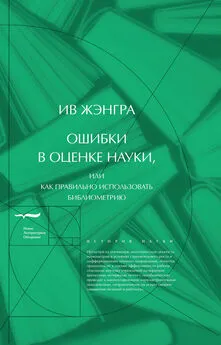

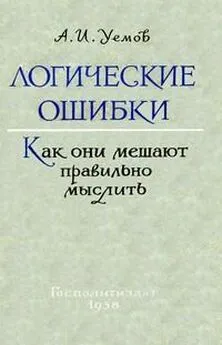
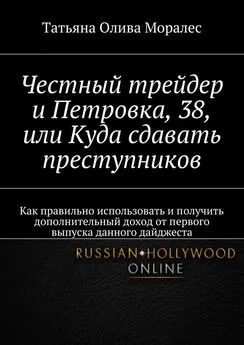
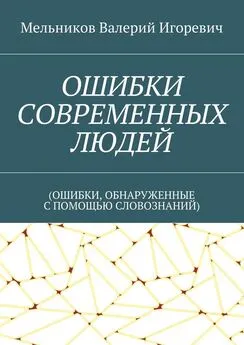
![Ив Жангра - Ошибки в оценке науки, или как правильно использовать библиометрию [калибрятина]](/books/1061749/iv-zhangra-oshibki-v-ocenke-nauki-ili-kak-pravilno.webp)
